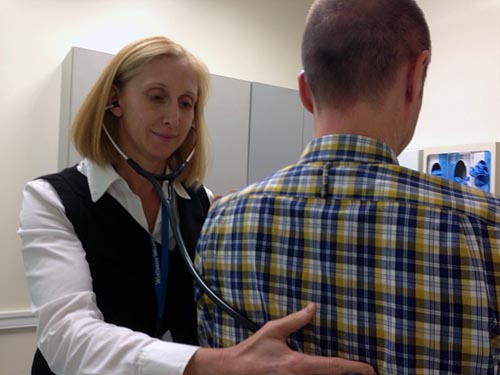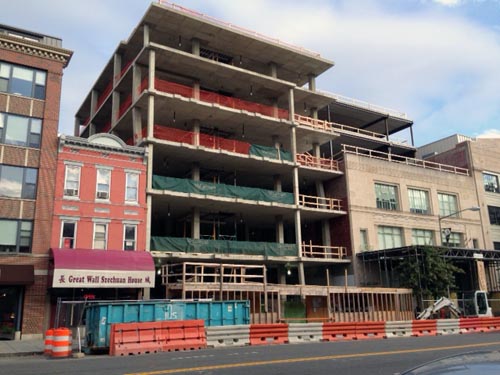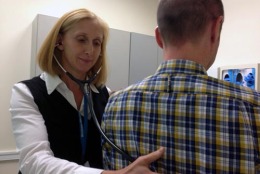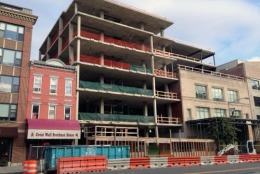



WASHINGTON – There will be a celebration Saturday morning in the streets of Washington — it’s for all the progress the city’s made in the war on AIDS. But it’s mixed with a recognition that much more remains to be done.
The annual AIDS Walk Washington is a big fundraiser for Whitman Walker Health, a nonprofit that has been providing treatment and support for decades to those affected by HIV/AIDS in the D.C. area.
“We were the first and only, for a while, health care entity to really respond to the early epidemic,” says Justin Goforth, director of community relations at Whitman Walker.
Goforth has seen it all. He was a hospice nurse at the start of the epidemic, offering comfort to those dying — what he calls “a miserable death.”
In 1992, he was diagnosed as HIV-positive and thought his days were numbered.
“I picked up the phone and called my various student loans through three college degrees and had them consolidated into one long-term loan, thinking the joke was one them,” he says.
Goforth became a study subject at the National Institutes of Health, where a nurse told him he was lucky and that he might live another six years or so. Instead, thanks to drug therapies that steadily improved, he is living healthy and well 21 years later.
He says he shares his story with newly diagnosed patients at Whitman Walker from time to time.
“It would be beneficial for them to understand where we were and where we are,” Goforth says.
␎
Justin Goforth, director of community relations for Whitman Walker, shows posters from the height of the aids crisis. (WTOP/Paula Wolfson)
Today, Goforth estimates there are 14,000 to 15,000 people like him, living with HIV/AIDS in D.C.
Over the years, Whitman Walker has changed its mission and has evolved — going from a small basement clinic to a full-scale medical center in the Logan Circle area with a new state-of-the-art home under construction.
While Goforth is thrilled with the progress made, he warns that challenges remain. He says there are still far too many people walking around who are HIV-positive and don’t know it.
And while infection rates overall in the D.C. area are declining, they are continuing to rise among young people ages 13 to 24.
Perhaps the biggest misconception is that most of those affected locally are gay men who live in Northwest D.C.
Dr. Sarah Henn, medical director of the Elizabeth Taylor Center at Whitman Walker, says the patient population is actually extremely diverse.
“We see patients from every ward and every demographic in the city,” she says, noting that people also come in from Virginia and Maryland.
On one recent day, her first patient was an upper-middle class white male in his 50s. The last was a 75-year-old African-American woman on Medicare.
“I have people who are just leaving their teens and I have grandparents, and everyone in between,” Henn says.
And that is why she will be running the AIDS Walk Washington 5K — for them.
Registration for the AIDS Walk Washington is available at the Logan Circle Pacers. For more information, visit the event’s website.
Follow @WTOP and @WTOPliving on Twitter.







